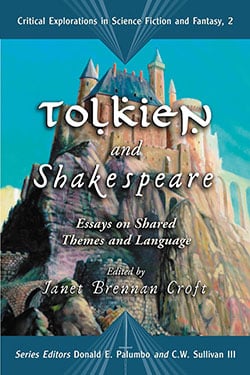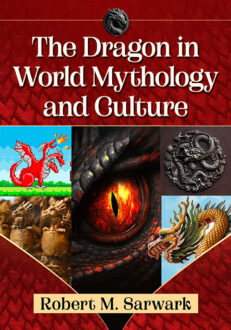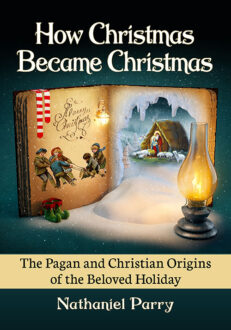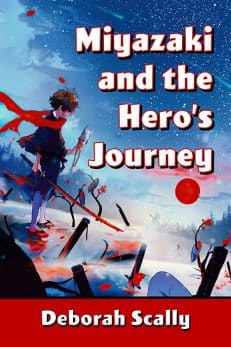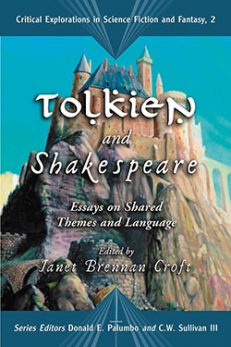Tolkien and Shakespeare
Essays on Shared Themes and Language
$35.00
In stock
About the Book
Tolkien and Shakespeare: one a prolific popular dramatist and poet of the Elizabethan era, the other a twentieth-century scholar of Old English and author of a considerably smaller body of work. Though unquestionably very different writers, the two have more in common than one might expect.
These essays focus on the broad themes and motifs which concerned both authors. They seek to uncover Shakespeare’s influence on Tolkien through echoes of the playwright’s themes and even word choices, discovering how Tolkien used, revised, updated, “corrected,” and otherwise held an ongoing dialogue with Shakespeare’s works.
The depiction of Elves and the world of Faërie, and how humans interact with them, are some of the most obvious points of comparison and difference for the two writers. Both Tolkien and Shakespeare deeply explored the uses and abuses of power with princes, politics, war, and the lessons of history. Magic and prophecy were also of great concern to both authors, and the works of both are full of encounters with the Other: masks and disguises, mirrors that hide and reveal, or seeing stones that show only part of the truth.
About the Author(s)
Bibliographic Details
Edited by Janet Brennan Croft. Series Editors Donald E. Palumbo and C.W. Sullivan III
Format: softcover (6 x 9)
Pages: 336
Bibliographic Info: notes, references, index
Copyright Date: 2007
pISBN: 978-0-7864-2827-4
Imprint: McFarland
Series: Critical Explorations in Science Fiction and Fantasy
Table of Contents
Introduction: Tolkien and Shakespeare: Influences, Echoes, Revisions 1
FAËRIE
Clashing Mythologies: The Elves of Shakespeare and Tolkien 9
“How Now, Spirit! Whither Wander You?” Diminution: The Shakespearean Misconception and the Tolkienian Ideal of Faërie 25
Just a Little Bit Fey: What’s at the Bottom of The Lord of the Rings and A Midsummer Night’s Dream? 42
“Perilously Fair”: Titania, Galadriel, and the Fairy Queen of Medieval Romance 60
POWER
“We Few, We Happy Few”: War and Glory in Henry V and The Lord of the Rings 81
The Person of a Prince: Echoes of Hamlet in J.R.R. Tolkien’s The Lord of the Rings 91
How “All That Glisters Is Not Gold” Became “All That Is Gold Does Not Glitter”: Aragorn’s Debt to Shakespeare 110
“The Shadow of Succession”: Shakespeare, Tolkien, and the Conception of History 128
“The Rack of This Tough World”: The Influence of King Lear on Lord of the Rings 137
Shakespearean Catharsis in the Fiction of J.R.R. Tolkien 158
MAGIC
Prospero’s Books, Gandalf’s Staff: The Ethics of Magic in Shakespeare and Tolkien 177
Merlin, Prospero, Saruman and Gandalf: Corrosive Uses of Power in Shakespeare and Tolkien 196
“Bid the Tree Unfix His Earthbound Root”: Motifs from Macbeth in J.R.R. Tolkien’s The Lord of the Rings 215
THE OTHER
Hidden in Plain View: Strategizing Unconventionality in Shakespeare’s and Tolkien’s Portraits of Women 229
Something Is Stirring in the East: Racial Identity, Confronting the “Other,” and Miscegenation in Othello and The Lord of the Rings 251
Self-Cursed, Night-fearers, and Usurpers: Tolkien’s Atani and Shakespeare’s Men 267
Gollum and Caliban: Evolution and Design 281
Of Two Minds: Gollum and Othello 294
About the Contributors 313
Index 317
Book Reviews & Awards
“some worthwhile contributions here”—Library Journal; “recommend[ed]”—Mythlore; “this collection is well worth the time of scholars of Tolkien and Shakespeare alike. Both sides will find insights into their own author…Croft has done an admirable job of assembling a strong collection of essays that should persuade many to rethink basic assumptions about Tolkien’s relationship to Shakespeare”—Journal of the Fantastic in the Arts; “of interest to children’s literature scholars”—Children’s Literature Association Quarterly; “I enjoyed—and found my thinking stimulated by—this book…will look forward to new work from its authors, including its editor”—Tolkien Studies; “scholars of English literature explore how the Elizabethan playwright and poet influenced the 20th-century scholar of Old English and writer of fantasy in terms of themes, motifs and word choices”—Reference & Research Book News.

